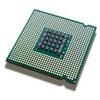Computing on encrypted data is a promising approach to reduce data security and privacy risks, with homomorphic encryption serving as a facilitator in achieving this goal. In this work, we accelerate homomorphic operations using the Processing-in- Memory (PIM) paradigm to mitigate the large memory capacity and frequent data movement requirements. Using a real-world PIM system, we accelerate the Brakerski-Fan-Vercauteren (BFV) scheme for homomorphic addition and multiplication. We evaluate the PIM implementations of these homomorphic operations with statistical workloads (arithmetic mean, variance, linear regression) and compare to CPU and GPU implementations. Our results demonstrate 50-100x speedup with a real PIM system (UPMEM) over the CPU and 2-15x over the GPU in vector addition. For vector multiplication, the real PIM system outperforms the CPU by 40-50x. However, it lags 10-15x behind the GPU due to the lack of native sufficiently wide multiplication support in the evaluated first-generation real PIM system. For mean, variance, and linear regression, the real PIM system performance improvements vary between 30x and 300x over the CPU and between 10x and 30x over the GPU, uncovering real PIM system trade-offs in terms of scalability of homomorphic operations for varying amounts of data. We plan to make our implementation open-source in the future.
翻译:暂无翻译




